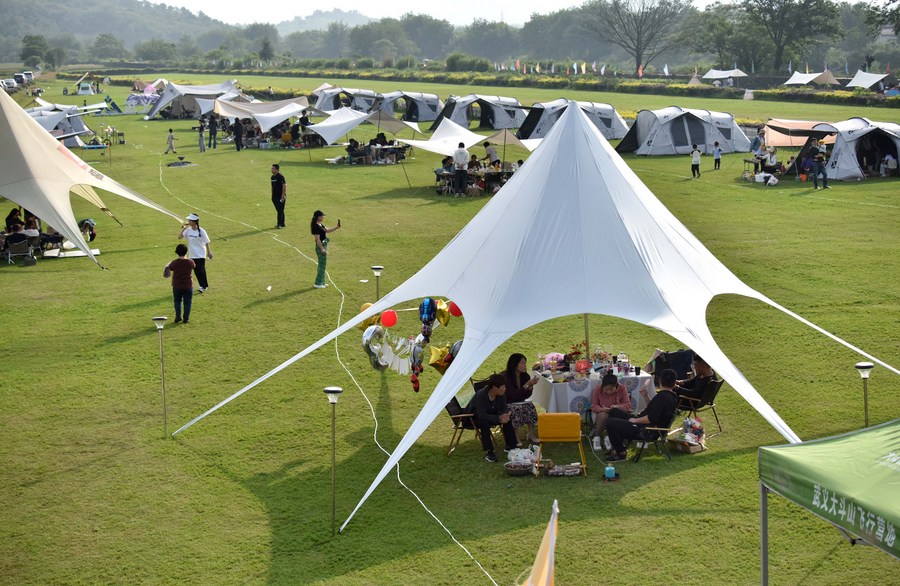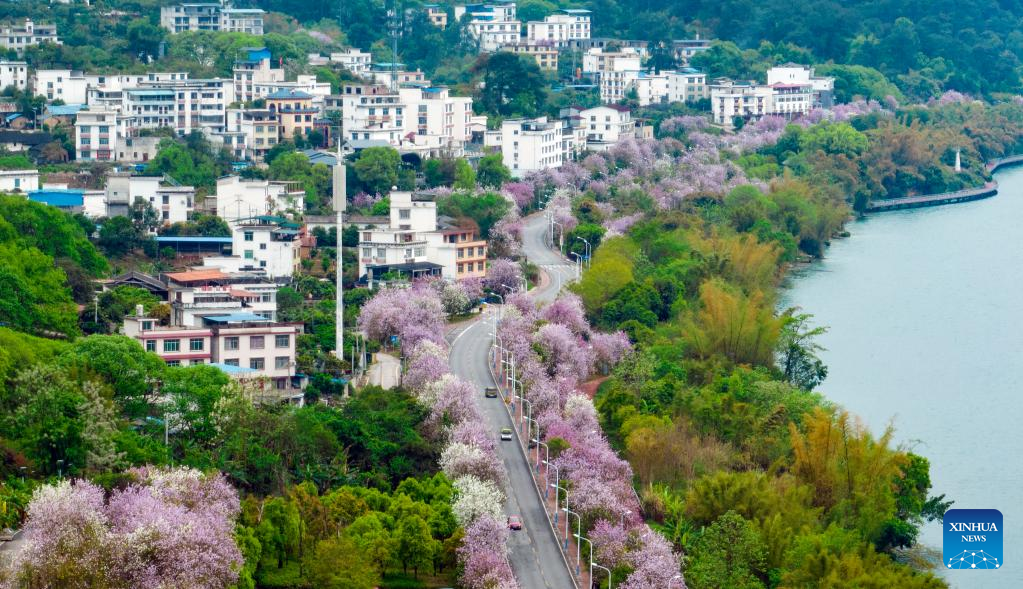China's tourist market in 2023: Four new trends to watch out for!
Did you travel on the May Day holiday? What's new in 2023's tourist market? Let's explore some of the travel trends that reflected the latest developments in and will shape the future of the tourism industry.
Whirlwind tours are on the rise
The "special forces" tourist, or whirlwind traveler, must be one of the hottest buzzword words in China this year, meaning that young people try to visit more places in less time and with less money.
Nan Duoduo, a young man born in the 1990s, climbed The Five Great Mountains in China's five provinces during the 5-day May Day holiday. His feat almost shocked everyone on the internet. Net users jokingly referred to him as the "strongest tourist special force."
Nan Duoduo is not alone. According to data from Tongcheng Travel, 62% of tourists in their 20s chose to depart at dusk and arrive at their destination at dawn to spare accommodation fees. Additionally, 30% of them visited more than four scenic spots in a day. The most popular destinations are cities with dense attractions and convenient public transportation, such as Beijing, Chongqing, Changsha, Shanghai, and Nanjing.
Some netizens believe that "special forces-style travel" is a privilege for university students because most of them have limited budgets, but good health and plenty of free time. Though physically tired, they are spiritually satisfied and can create precious memories while young and energetic.
There are several reasons why the special forces-style travel has won popularity. On one hand, after three years of the pandemic, many people have realized the importance of seizing every possible chance to see the world and enjoy the present. On the other hand, social media played a significant role in promoting this travel trend. Many people share their fast-paced travel guides on the ubiquitous social media networks, attracting more attention and triggering endless imitation.

Nan Duoduo shares his whirlwind tours climbing The Five Great Mountains in China's five provinces during the 5-day May Day holiday on WeChat moments. [Photo provided by the interviewee]
Slow-paced camps go through reshuffling
Contrary to the whirlwind travel style, a group of people prefers a slower travel pace, with camping being a most representative choice.
At the start of Covid-19, lock downs and social distancing measures pushed Chinese youngsters to seek idyllic campsites for pleasure from outdoor life. This trend continued into 2021 and 2022, but campground owners have reported a decrease in visitors, indicating that the camping trend may be waning.
According to iiMedia Research, the camping market experienced rapid growth in 2021, with a growth rate of 78%, but this decreased to 18.6% in 2022. Business insiders analyzed that camping was particularly popular in the past two years due to limited options available. Camping provided a sense of peace, relaxation and freedom, allowing us to escape from the reality full of anxiety and uncertainty for a moment.
Along with camping, activities like boiling tea around a stove, throwing a frisbee, barbecuing, and playing board games also allowed people to get closer to nature while forgetting the hustle and bustle of daily life. However, as the pandemic restrictions have eased, intra-provincial and inter-provincial travel replaced camping as first choices during the holiday.
As there are more possibilities for leisure activities in the post-pandemic era, camping sites need to upgrade service quality for survival. Therefore, the camping industry is currently undergoing a period of reshuffling. Those campsites which are poorly maintained or heavily homogeneous will be eliminated in market competition. And the remaining campsites are trying to integrate camping with culture, art, sports, music, cuisine and so on to improve diversity, customization, and entertainment. Themed camping, such as forest camps, stargazing camps, and parent-child camps, are gradually gaining popularity.

People camp in a scenic area in Wuyi County of east China's Zhejiang Province, May 2, 2022. (Photo by Zhang Jiancheng/Xinhua)
Lesser destinations grow to be "new favorites"
"Believe it or not, you can stay in a luxurious five-star hotel room in Hegang for only 300 RMB per night!" A Chinese tourist recently shared his travel experience on social media. As a result, Hegang, a relatively unknown city in northeast China's Heilongjiang province, made a hit in the cyberspace.
Besides, other lesser-known Chinese destinations have become the "new favorites" in this year's tourism market. Places like Hanzhong in Shaanxi, Dongying in Shandong, Wenchang in Hainan, Liuzhou in Guangxi, Nanao Island in Guangdong, and Youyang in Chongqing have all gained popularity during public holidays. On the Dianping website, "niche activities" and "less-crowded places" have become hot search terms.
What made reverse tourism popular? The main reason is that famous scenic areas and attractions are always overcrowded and overpriced during holidays, making it difficult for people to enjoy them. "Today's young people desire a relaxing travel experience that is enjoyable, stress-free and inexpensive, and those less-explored destinations meet their needs perfectly," said an industry insider.
Further, reverse tourism illustrates how tourists value personalized experiences over following others to well-known sites. "Well-known tourist destinations will still be the mainstay of the future tourism market, but less-known destinations will also have a place, and may even develop from niche to mainstream," added the insider.

This aerial photo taken on April 5, 2023 shows cars running past Bauhinia blossoms in Liuzhou City, south China's Guangxi Zhuang Autonomous Region. (Photo by Li Hanchi/Xinhua)
Exchange travel offers zero-cost homestay
Recently, a new type of travel has emerged on social media, that is, exchange travel. Specifically, two strangers travel to each other's cities and stay in each other's homes at "zero cost."
Net users listed their requirements on the house and the house owner and posted the information on social media, such as Xiaohongshu. In this way, the two sides may reach an agreement about the travel schedule through online communication.
While some individuals found hotel prices expensive, exchange travel allowed them to save money and experience a distinctive and individualized trip by living like a local. However, others held a conservative view and were skeptical about allowing strangers to stay in their homes due to safety concerns, especially regarding property security and personal privacy. "Third-party regulations should be introduced to ensure the benefits and security of both parties involved in the exchange," some suggested.
Written by Guo Yao








